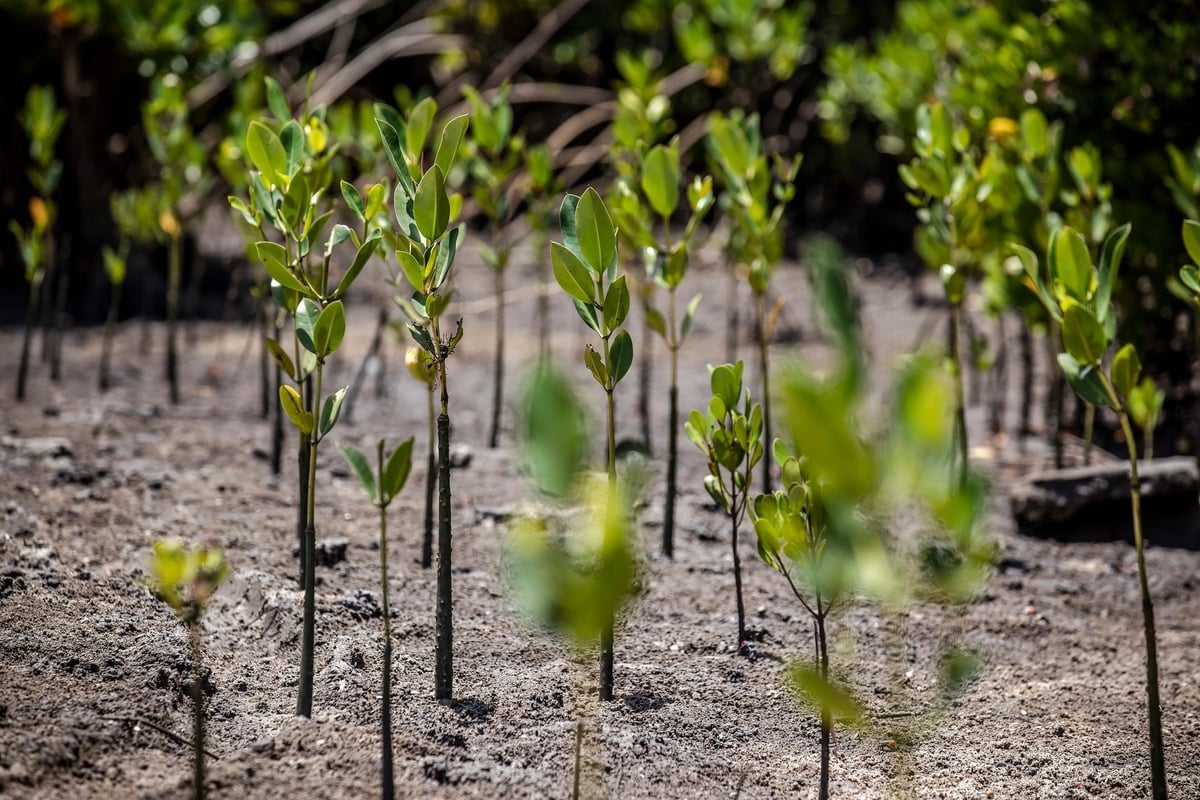December 2, 2025 | 13:57 GMT +7
December 2, 2025 | 13:57 GMT +7
Hotline: 0913.378.918
December 2, 2025 | 13:57 GMT +7
Hotline: 0913.378.918

AIM4NatuRe prioritizes a comprehensive approach to ecosystem restoration, encompassing a wide range of activities, from reforestation to the recovery of grasslands and marine ecosystems.
The Food and Agriculture Organization of the United Nations (FAO) Earth Day launched Accelerating Innovative Monitoring for Nature Restoration (AIM4NatuRe), a new initiative with GBP 7 million from the United Kingdom to improve monitoring and reporting of global ecosystem restoration efforts.
“AIM4NatuRe will provide a new dynamic input for global restoration efforts,” said FAO Director-General QU Dongyu. “By providing countries with technical expertise and solutions, and ensuring they have the resources they need to monitor their progress accurately, we can ensure that our collective efforts translate restoration commitments into real and lasting impacts for people and the planet during this UN Decade on Ecosystem Restoration and beyond.”
“AIM4NatuRe is an innovative initiative that will leverage technology and data to enhance nature restoration, building on the success of the high-performing AIM4Forests programme. The UK has a leading role in protecting and restoring forests while empowering the communities that depend on them, and we’re proud to work with partners like FAO to support countries across the globe,” said United Kingdom Minister for Climate Kerry McCarthy.
AIM4NatuRe will complement FAO’s existing AIM4Forests programme and enable the creation of a global dataset on nature restoration progress. Countries will receive support to build capacity and use the latest technology to monitor and report their progress towards target 2 of the Kunming-Montreal Global Biodiversity Framework (GBF), which aims to restore at least 30 percent of degraded ecosystems by 2030.
The initiative prioritizes a comprehensive approach to ecosystem restoration, encompassing a wide range of activities, from reforestation, restoration of degraded agricultural lands and wetland rehabilitation to the recovery of grasslands and marine ecosystems.
Ecosystem restoration is a powerful nature-based solution to address biodiversity loss, climate change and land degradation. Globally, around 1 billion hectares of land have been committed for restoration, with the potential to contribute one-third of the total climate mitigation needed to limit warming to below 2°C by 2030, while contributing to food security and livelihoods.
However, many countries lack the technical solutions and capacity to effectively track and report their progress in restoring degraded ecosystems. In a recent capacity needs assessment survey by the Convention on Biological Diversity (CBD) Secretariat, 80 percent of countries responding said they were unable to collect data to report national restoration progress.
Cutting-edge technology
At the recent Resumed Session of the CBD Sixteenth meeting of the Conference of the Parties (COP16) in Rome, Parties acknowledged the need for increased support in implementing Target 2 and invited FAO to lead the effort.
AIM4NatuRe will address this challenge by providing countries with access to cutting-edge technology, and capacity development, working toward a unified global dataset for areas under restoration. This will empower nations to move beyond broad commitments and generate verifiable data on the effectiveness of their restoration work, fostering transparency and ownership.
To ensure seamless data sharing and analysis, AIM4NatuRe will prioritize data interoperability. This will involve establishing standardized data formats and protocols that facilitate the harmonization and aggregation of data collected at national levels into a global reporting framework. This will enhance transparency and comparability while reducing the reporting burden for countries. AIM4NatuRe will also develop practical guidance documents and technical solutions, namely the Framework for Ecosystem Restoration Monitoring (FERM), to support countries in data collection, analysis, and reporting, ensuring that information is readily available and usable.
Notably, the initiative will support Indigenous Peoples in the monitoring of biocentric nature restoration, a holistic approach that prioritizes the well-being of all living things within an ecosystem. A pilot with FAO's Indigenous Peoples unit will take place in Brazil and Peru.
At a virtual event today in Rome today, FAO also launched a new publication entitled Enabling consistent reporting and monitoring for freshwater (inland waters) restoration under Target 2 to support countries in achieving GBF Target 2.
AIM4NatuRe expands on AIM4Forests, also funded by the UK, which leverages advanced technology for forest monitoring and has trained people across 14 countries. AIM4NatuRe broadens this work to all ecosystems, offering a holistic approach to monitoring restoration progress. Its capacity development initiatives include the Forest Monitoring for Climate Action e-learning curriculum with 15,748 web learners engaged.
(FAO)

(VAN) The Institute of Agricultural Sciences for Southern Vietnam (IAS) marked its 100th anniversary in Ho Chi Minh City, celebrating a century of growth as a leading institute contributing significantly to Viet Nam’s agricultural development.

(VAN) An increasing number of livestock farms are using biogas generators to create a source of renewable electricity, helping to save costs and mitigate environmental pollution.

(VAN) Small changes in rice cultivation, from irrigation methods and straw collection to input management, are paving a new way for Vietnam's agriculture in the journey toward emission reduction.

(VAN) With the project of converting biogas into renewable electricity, Australia is both helping pig farms reduce their energy costs by up to 25% and contributing to environmental protection.
![Hue aims for Net Zero: [1] Initial steps from green transportation](https://t.ex-cdn.com/nongnghiepmoitruong.vn/608w/files/huytd/2025/11/28/0853-anh-6-giao-thong-xanh-hue-094717_940-153724.jpg)
(VAN) For sustainable development, Hue City is implementing many solutions to promote green transportation, which is an important initial step on the journey to building a Net Zero Hue.

(VAN) Nghe An Province, one of the localities with the largest forest area in Vietnam, is set to gain significant benefits from the implementation of forest carbon credit payments.

(VAN) Circular agriculture helps Mekong Delta farmers cut greenhouse gas emissions while boosting incomes through efficient reuse of agricultural by-products.